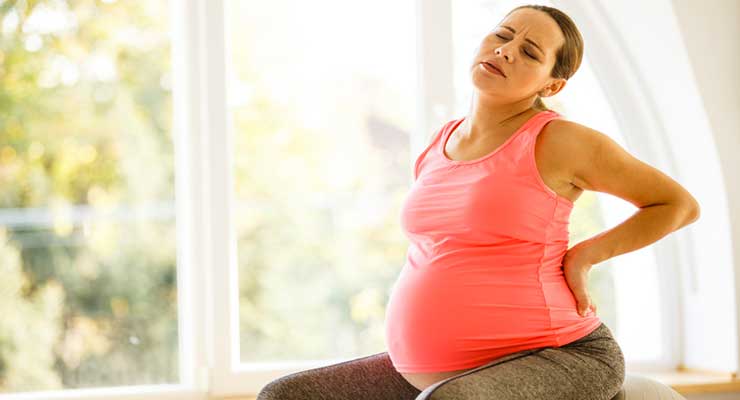Unlike morning sickness, which typically occurs during the first trimester, backaches during pregnancy are usually experienced in the third and final trimester as the baby reaches full term. If you are pregnant and have a backache, you are not alone. The American Pregnancy Association states that between 50 and 70 percent of all pregnant women experience backaches during pregnancy at some stage and to varying degrees.
What Causes Backaches During Pregnancy?
Weight Gain
Pregnancy weight gain puts a strain on your back, even if you stay within the range recommended by your obstetrician. Because nine months is a short period to gain the 20 lbs. of an average pregnancy, the back typically does not have enough time to adjust to the extra weight.
Muscle Strain, Hormonal Changes
Because the baby is right in the center of your body, the muscles in your back and abdomen have additional work to do. At the same time, the muscles and ligaments are being stretched by your expanding belly, resulting in additional strain. Hormones are busy telling your joints to loosen and your ligaments to soften in preparation for the big event.
Posture and Center of Gravity
Because the baby is growing in your midsection, your center of gravity is changed, and your body counterbalances so you do not just tip over. This results in a change in your posture because you are pulling your body slightly backward to maintain your balance. Also, as your pregnancy advances, you will have to change your position to accomplish many everyday tasks. For example, where you would usually stand at the sink with your hips close to or touching the counter edge, you must now step back a pace to accommodate your growing baby.
Stress
Stress tends to gravitate to the weakest area of the body, and because your pelvic area is undergoing a massive transition, any stressful events during your pregnancy can cause the muscles in your lower back to tighten up and give you a backache.
Medical Issues
Backache in pregnancy can also be caused by medical conditions, such as an infection or osteoporosis. Also, the Mayo Clinic states that severe back pain should always be brought to the attention of your medical care provider. A dull backache in the lower back can be a sign of labor, both pre-term and full term.





